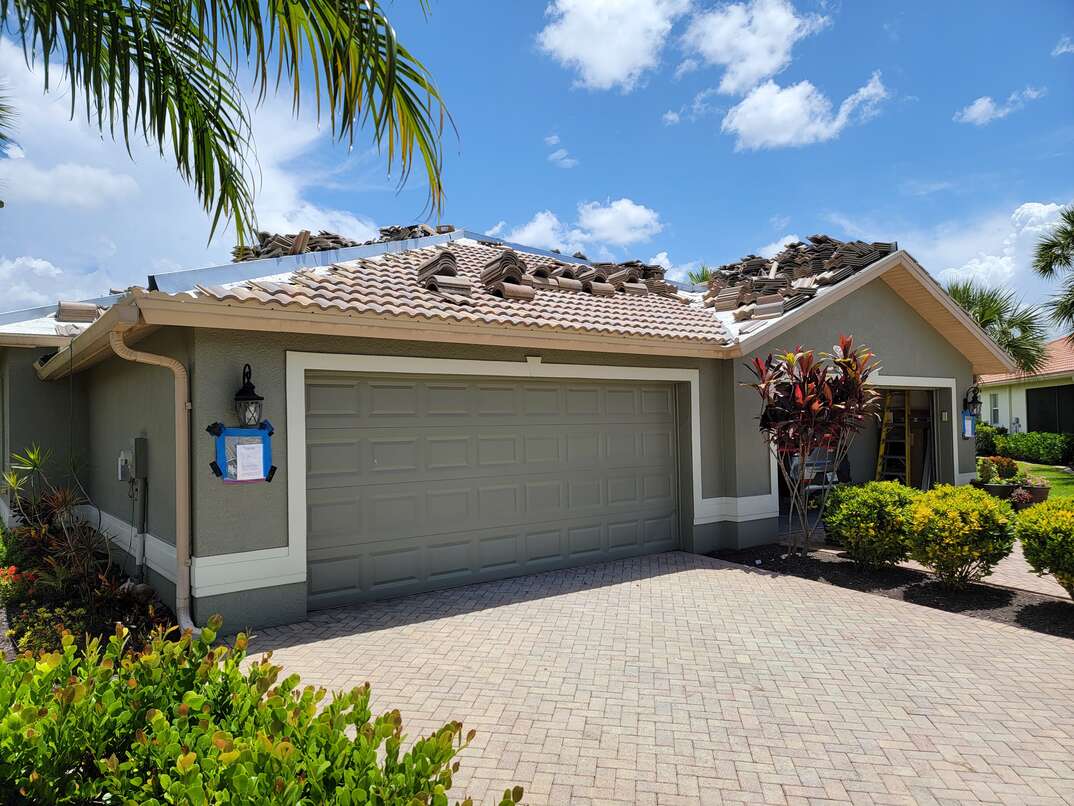- AppliancesElectriciansHVACLandscapingLocksmithPest ControlPlumbingRenovationRoofingT V RepairAll Home Improvement
- Car AccidentClass ActionCorporate LawCriminal DefenseDivorce LawEmployment LawFamily LawFinancial LawLegal AidMedical Injury LawyersMedical MalpracticeReal Estate LawWater Fire RestorationAll Legal
- InvestmentRetirementAll Finance
- Animal InsuranceAutoGeneral InsuranceHealth PolicyHome RentersAll Insurance
- DentalHealth SpecialistsAll Medical
- Animal CareVeterinaryAll Pets
- Auto GlassTowingAll Automotive
Sustainable Roofing Materials: Costs and Considerations

Sustainability considerations affect everything from food to construction — and with good reason. When you choose a sustainable material, you’re opting for a resource that won’t be consumed before it can be replenished.
If it’s time to replace your home’s roof, a sustainable roofing system may seem like the obvious choice. To help you make a smart decision, let's explore several eco-friendly options.
Sustainability means choosing materials that aren’t made from irreplaceable resources and can be sourced without irreparably damaging the earth. Mined resources and products made using fossil fuels aren’t considered sustainable because they’re made using materials that will one day run out. For this reason, slate roofing, metal roofing and petroleum-based asphalt shingles aren’t considered sustainable.
However, depending on how a roof is manufactured, its overall performance and the method used to eventually dispose of it, an unsustainable roof may still be environmentally friendly. For example, durable materials that reflect heat and reduce a home’s cooling costs are often considered eco-friendly, even if the raw materials aren’t sustainable.
What Are Some Sustainable or Eco-Friendly Roofing Materials?
Eco-friendly roofing materials are typically durable, reflective and long-lasting. Some green roof materials may also contain recycled materials. Here are several eco-friendly or sustainable roof materials worth considering.
Wood
Wood roofing that comes from a sustainably harvested source is considered sustainable, especially if you live in a region where the shakes or shingles are manufactured from FSC-certified wood. Wood roofing that isn’t treated with preservatives is also biodegradable. However, wood roofing is less durable than clay, slate or metal, so you'll probably have to replace it sooner.
If you’re considering wooden roofing, cedar is the most common option. When installing cedar shingles, Modernize says you can expect to spend between $4 and $7.25 (CAD 5.47 and CAD 9.92) per square foot. Shakes typically run higher, averaging between $6 and $9.50 (CAD 8.21 and CAD 13) per square foot.
Clay
Clay roofing tiles, sometimes referred to as terra-cotta tiles, are often considered a sustainable roofing material. That’s because clay is plentiful, easy to source and often extracted close to the tile manufacturing plants, which minimizes the fuel requirements for transport. These tiles are also reusable when properly salvaged.
Terra-cotta is extremely durable and can last more than a century if cared for properly. However, clay tile roofs are costly, averaging between $9.72 and $14.05 (CAD 13 and CAD 19) per square foot.
More Related Articles:
- How Much Does a Home Inspection Cost?
- 4 Tips for Hiring a General Contractor for Your Next Remodeling Project
- Should You Hire a Contractor or a Handyman?
- 5 Things to Look For When You're Hiring an Electrician
- What to Look for When Hiring an Exterminator
Recycled Shingles
Recycled shingles may contain plastic, rubber or wood fiber. Because they give waste a second life and don’t require new raw materials, they’re often considered the most eco-friendly roofing material.
Aesthetically, recycled roof shingles can resemble either slate or traditional cedar shakes. They’re also extremely durable, often lasting more than 50 years. Additionally, these materials won’t break the bank. You can expect to pay between $4.25 and $8.25 (CAD 5.82 and CAD 11) per square foot for a rubber roof, according to Modernize, and $6 to $12 (CAD 8.22 to CAD 16) for a composite or plastic-based roof, based on data from HomeGuide.
Metal
Because the raw materials are mined, metal roof systems aren’t sustainable — but they are eco-friendly. That's because they perform well and can be fully recycled, so the scraps won’t ultimately end up in a landfill. Some metal roofing may even be partially constructed from recycled materials. Metal roofs are also exceptionally durable and can often last between 50 and 75 years.
If you’re considering a metal roof, your costs can vary, depending on the type of metal you choose. For example, This Old House says galvanized steel can start as low as $4.50 (CAD 6.16) per square foot, while a copper roof can cost as much as $40 (CAD 55) per square foot.
A green roof, also known as a living roof, is a flat or low-slope surface covered in grass or small native plants. Although green roof systems have numerous benefits, such as insulating your home and saving on energy costs, they aren’t considered sustainable because waterproofing them requires a petroleum-based rubber membrane. If you’re still eyeing a green roof, expect it to set you back between $10 and $200 (CAD 14 to CAD 274) per square foot, depending on your location, the plants you choose and your roof’s accessibility.
All CAD conversions are based on the exchange rate on the date of publication.
Elocal Editorial Content is for educational and entertainment purposes only. Editorial Content should not be used as a substitute for advice from a licensed professional in your state reviewing your issue. Systems, equipment, issues and circumstances vary. Follow the manufacturer's safety precautions. The opinions, beliefs and viewpoints expressed by the eLocal Editorial Team and other third-party content providers do not necessarily reflect the opinions, beliefs and viewpoints of eLocal or its affiliate companies. Use of the Blog is subject to the
Website Terms and Conditions.The eLocal Editorial Team operates independently of eLocal USA's marketing and sales decisions.



